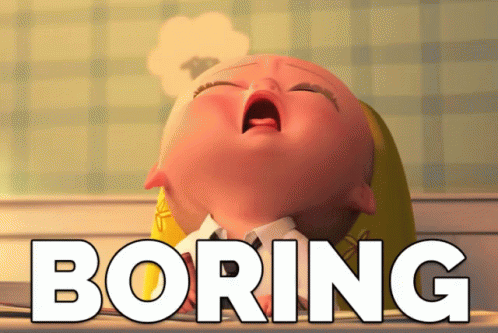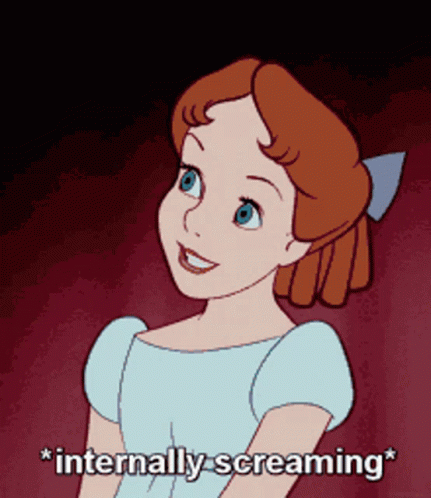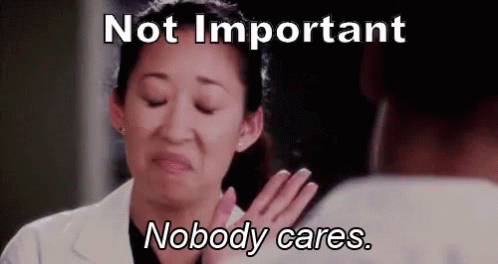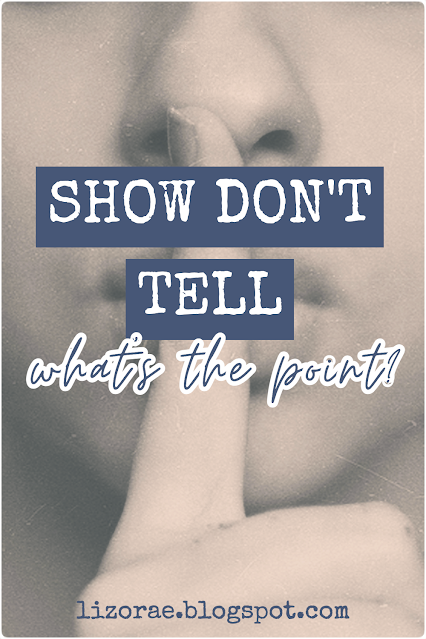Why You SHOW DON'T TELL
"Show don't tell" is a piece of writing advice you'll heart everywhere. Naturally, I've thought about it many times, trying to discover the core of almost every writing advisor's favourite tip. The reason for its existence. The heart of its...
Nah, just kidding. I spent most of my time trying to argue against it. Tell, don't show. It's not because I think it's bad advice. I wanted to see why it's so popular. You know, what's the big deal with showing? Flash forward a few years, I've finally decided to write a blog post about it. Let's get to!
What exactly is "show don't tell"?
 |
| Source: Giphy |
Show don't tell can be explained exactly how it is. Show what is happening, show what the characters are feeling, show what their senses are picking up. Don't tell.
For example, it's a hot day and your character is really feeling it. Here's the same series of events, one told with telling and the other with showing.
Telling:
Kelly felt hot. She wanted to go to the shopping mall for one reason and one reason only. The aircon. She told Jason but he thought she was joking. She walked quickly to the mall, Jason reluctantly following her.
Showing:
Kelly wiped sweat from her forehead. "I hate the sun!" she moaned. "My skin is literally melting off my bones."
Jason laughed. "How about the mall? Bet they have schmick aircon."
"I'm won." Kelly charged toward the towering building in front of them.
Jason glanced to the left and back at Kelly. "But the mall's that way."
Which one do you find more interesting? If you said the telling version, haha very funny. The telling version is boring. While my showing example isn't the best writing, it's way better.
Now the question is, what are the signs that you're telling? Here's the telling example again, except this time, I'll underline the warning signs with explanations and comparisons.
Kelly felt hot. She wanted to go to the shopping mall for one reason and one reason only. The aircon. She told Jason but he thought she was joking. She walked quickly to the mall, Jason reluctantly following her.
What the telling version is doing is stating what's going on. It's saying what the character feels, thinks, desires and why they want it. It's even stating their actions and how they did the action.
Take "Kelly felt hot". There's no arguing whether she feels cold, hot or warm. She's hot because it says so. Compare this to the telling version. Kelly "wiped sweat" and "hates the sun" and "skin melting off [her] bones". It's obvious that Kelly is hot, but it's possible to argue otherwise. Why you'd argue otherwise is another question, but you get the point.
Telling flat out dictates what you're supposed to interpret, but showing lets you make your own interpretation through what it implies.
Look through your own writing. Check for specific word choices. Does it have words like thought, felt, wondered, etc? That's telling. Are you over summarising events, like saying they fought or she told him this? Telling, again. Are you using adverbs? High chance you're telling.
Replace your telling with descriptions of what they're doing. Cross out she thought he was attractive and write about how her heart rate is accelerating and how good he looks. Instead of they fought, describe the punches, kicking and biting. Murder the adverbs and replace them with punchy words. They didn't walk quickly, they bolted. They didn't jump high, they leapt.
Why showing is better than telling
When I started thinking deeply about show don't tell, I already knew everything I just described, plus more information I'm inevitably forgetting or can't explain properly, haha. As I read books with this tip in mind, I found two huge reasons to show instead of tell.
1. Showing is interesting, telling is boring
 |
| Source: Giphy |
You can tell from my examples above. The telling version is a snore. The showing version is much more lively. The reason primarily is because of what I've already said. Telling states what the author expects the reader to understand, but showing leaves things up to our own interpretations.
People like arguing debating. It's fun. It kills time. What's not to love. We can't do that if we're told they're in love or they're not in love. But we can if we're only given hints like she blushed or he skuffed his feet while talking to the girl.
2. The crime of misconceived telling
 |
| Source: Tenor |
Okay guys. This for me is seriously the worst. Misconceived telling is a term I officially coin as of this instant. Misconceived telling is when there is telling in writing that isn't true. This is usually when a character says or does something and that moment is referred to by another character as *insert description word here*.
For instance: Marie leapt from rock to rock, dodging paintball bombs being hurtled at her.
"That's the coolest thing ever," said Louie, his jaw dropped.
That might not seem like a huge deal at first glance, but this is from an action story where rock leaping is common and paintball bombs are considered training tools that replace bullets. And Louie is an expert trainer who has seen many things.
Now do you get where I'm headed?
When is telling okay?
After all the rap about showing and not telling, you might feel tempted to delete any trace of telling. But before you do that, I beg wait a second. Sometimes, it is better to tell. It's rare, but it does happen.
1. Contradicting a "show"
 |
| Source: Gfycat |
Specifically for adverbs. Take she laughed. You're showing a reaction that implies happiness. But what if she's feeling empty or sad. She laughed is different from she laughed dryly and she laughed sadly.
Used sparingly, telling something that changes the most likely interpretation of a show can advance your writing.
2. To summarise unimportant events
 |
| Source: Tenor |
One difference between showing and telling is length. From my example, you could see that the showing version is a length longer than the telling version.
For events that ultimately don't matter, it's okay to tell what happened so you can move on to the exciting bits.
If your character is going on a camping trip, you don't need to show your character packing their toiletries and favourite t-shirt into their luggage (unless it has plot relevance). Just saying something like, character x packed her bag and raced outside to hail a taxi should suffice.
3. As humour
This is an iffy one. I don't recommend using this often because it can become tiring. But used right, it can be hilarious. I first realised this when reading Ranger's Apprentice. I can't remember the exact quote, so here's a sort-of it kind-of goes like this:
Halt [talked to his horse].
"Don't talk to your horse in public, dear," said Pauline.
Halt wondered how she knew that. He thought it was a well kept secret.
"Your nose twitches."
Halt wondered how she knew what he was wondering.
It's funnier if you read the book yourself.
~
Here's where the conclusion usually is. Except I'm feeling pretty tired right now, so enjoy a list of random words.Bacon, books shelves, darts, frames, white, psychology, gibberish, scrolly things.

Comments
Post a Comment